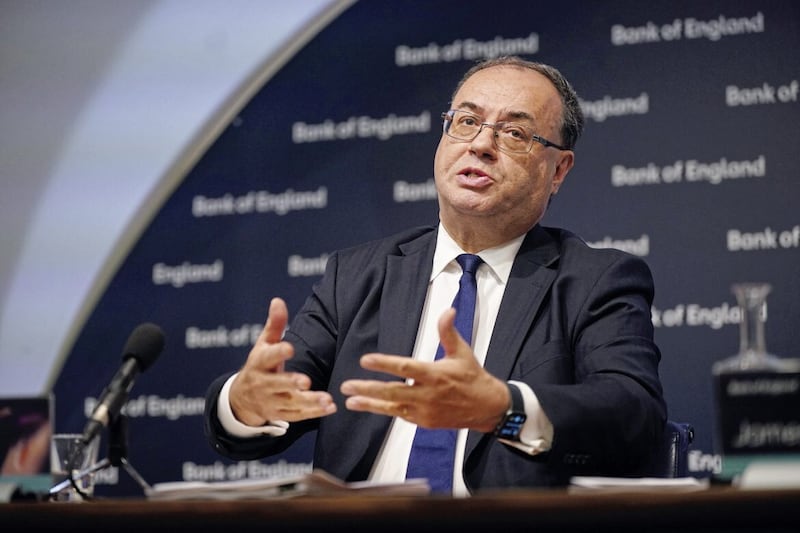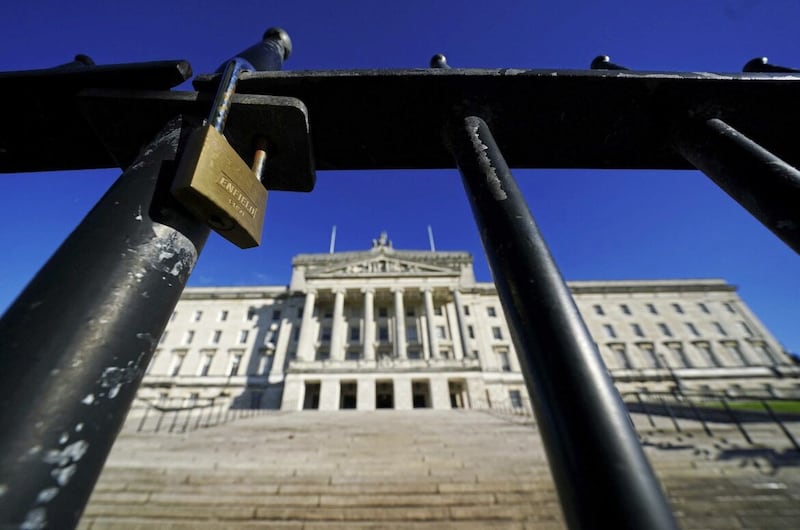THIS week, many will be raising a glass to the festive season as we enter the peak time for Christmas parties.
But the Bank of England will be playing party pooper by raising interest rates again on Thursday for the ninth consecutive meeting.
And overall, for those looking something to celebrate, the positives in the economy – locally, nationally and globally - seem to be in short supply.
There was a time when we expected the central bank to remove the punch bowl before the party gets going but during the course of the pandemic – even when said events were supposed to be frowned upon - the punch bowl appears to have been spiked and left out for too long.
As if to make up for this oversight, now Andrew Bailey and Chancellor Jeremy Hunt have taken it away, turned off the music and switched on the lights.
Rather than order taxis for everyone, Hunt has ruined the party by calling for taxes instead.

The majority of PMIs around the world have dipped below the 50 expansion/contraction threshold and all 12 UK regions posted falling private sector output for the second month running in November.
For Northern Ireland it was the seventh successive month of falling output and new orders.
Local firms are still being battered with inflationary pressures but the rate of cost and price pressures is now rising at the weakest pace in 21-months.
This isn’t the result of the Bank of England’s removing of the punch bowl, but rather it is due to the emerging and sustained global slowdown.
Unfortunately, economic instability won’t be the only lump of coal threatening to dampen festivities this year.
Political turbulence at almost every level has spilled into market turbulence and while the UK government may be hoping to find some stability wrapped underneath the Christmas tree, the elephant in the room in the US is whether ‘The Donald’ tries to make a comeback in 2024.
But this elephant is shrinking by the day. Closer to home, the lack of an NI Executive is compounding business concerns and what, if anything, might an Assembly Election in 2023 achieve?

The Secretary of State is cutting MLAs’ pay significantly to try to increase the prospects of an NI Executive returning.
But the reality of what they would be returning too is akin to an in-tray from hell.
The decisions required will be as unpalatable as some of the bushtucker trials that fellow politician Matt Hancock had to stomach.
We could hear some of our local representatives uttering: “I’m an MLA, get me out of here”.
These are just some of the many questions looming large as we prepare to ring in the new year.
Will the Chancellor’s autumn intervention help to pave a way towards recovery and where can we expect to see inflation?
Already it looks a given that the 2023 Ulster Fry Index will hit a record high.
That’s not to mention the wider impacts of falling house prices, rising temperatures, the energy crisis and the ongoing conflict in Ukraine.
One silver lining is that will be discussed around the dinner table as people eat their record priced Christmas dinner is that mortgage rates and energy prices are at least now easing. The hopes for 2023 are that this emerging trend will continue.
Time is perhaps the only thing that can shed clarity on many of these issues but as we wait to see how things unfold it is important to hold on to a little optimism.
Yes, the dark clouds are overhead but there is still light peeking through. We know that no matter how tough things are economically, there will always be companies doing well.
In the global economy, for many years, the FANGS were the leading lights who defied the economic environment in a seemingly never-ending upward trend of permanent growth.
But in 2022, this has come unstuck as even Facebook owner Meta and Netflix have hit harder times and have had to shed jobs in Meta’s case and change its model in Netflix’s case.
Elon Musk’s Midas touch even seems to have even deserted him as Tesla’s share price has tanked and his takeover of Twitter has cost him many billions.
In Northern Ireland, we have our own world-leading firms in areas including tech and pharma. If you consider companies like First Derivatives, Randox, Almac, Norbook, Kainos and STATSports, we have the FRANKS whose exporting prowess and employment growth have been so important to the local economy.
But given the markets in which they operate, they are unlikely to experience the same kind of rude awakening that has come to the FANGS and are likely to continue to be winners through this recessionary period.
The agri-food sector also tends to be all-but recession-roof. And the NI Protocol has been a significant pick-me-up as well in recent times.
However, clarity on the NI Protocol would be helpful to firms in this sector and across all sectors.
Currently the grace periods in place are preventing some of the Protocol’s pain from being felt, but can these be extended these indefinitely?
If the negotiating mixologists can take this off ice and ease up on the bitters, it could be the secret ingredient our punch bowl needs to maximise opportunities between NI and the EU and minimise disruption between local firms and GB.
After the global financial crisis, Northern Ireland’s exposure to the ROI economy proved to be its Kryptonite with the IMF visiting Dublin and the southern economy experiencing one of the worst crises in Europe.
Fast-forward to 2022/23 and the same economy is the top of the economic growth forecast table.
Unlike the UK, and most other economies, its public finances actually have a surplus. This has been linked to the success of some of the FANGS becoming embedded in the ROI economy.
This time around, the Republic of Ireland economy and the trade benefits that we will enjoy as a result will provide some Southern Comfort for now at least.
This is reflected in business confidence, with NI firms outside of manufacturing now expecting output to be lower in a year’s time.
Manufacturers’ optimism perhaps reflects the nature of the current recession, with households and consumer sensitive businesses likely to experience a longer and deeper downturn than global exporters, including those who export to the south.
Richard Ramsey is Northern Ireland chief economist at Ulster Bank








